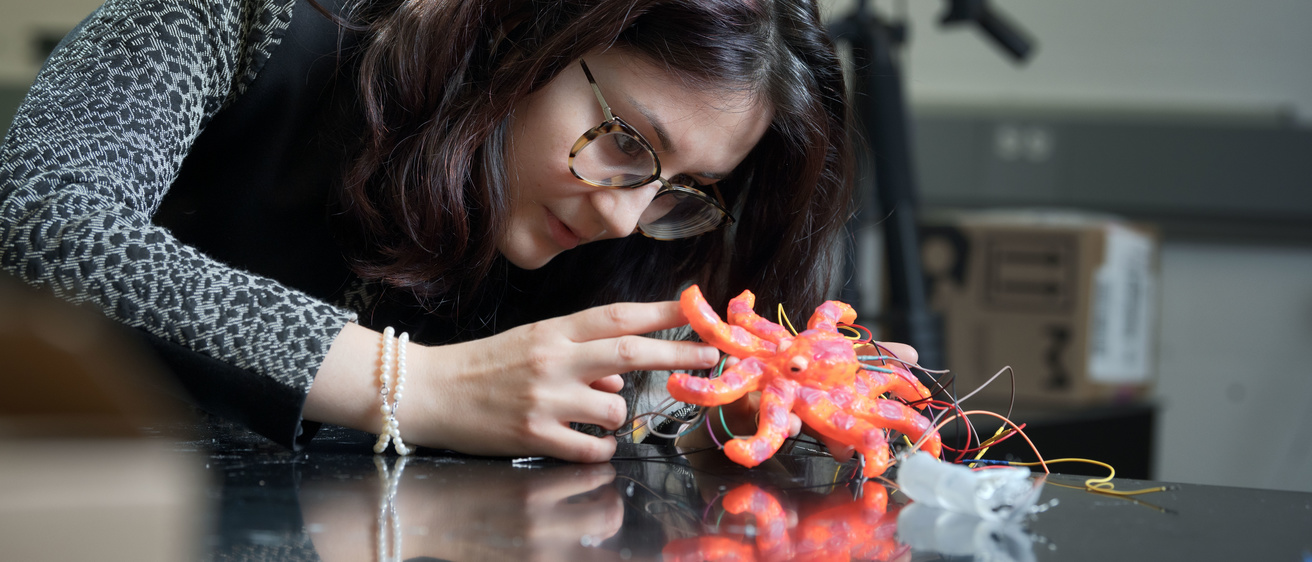
Caterina Lamuta, a University of Iowa assistant professor of mechanical engineering, has received the selective Director’s Fellowship from Defense Advanced Research Projects Agency (DARPA) to continue development of an underwater robot that mimics the movement of an octopus or squid.
The prestigious award provides an optional third year of funding for Young Faculty Award (YFA) winners who demonstrated success during the first two years of the program. Lamuta received the YFA in 2021. The YFA sponsors early career faculty to pursue high risk, high reward research addressing national security needs.
"Professor Lamuta undeniably shines as a rising star within our junior faculty cohort," said Ching-Long Lin, professor and department executive of mechanical engineering and Edward M. Mielnik & Samuel R. Harding Professor of Mechanical Engineering. "Her accomplishments here at Iowa have been nothing short of remarkable, as evidenced by her ability to secure funding from a wide array of agencies and solidify her position as a pioneering figure in the area of smart materials."

Lamuta has been developing self-morphing, stretchable soft skins that mimic movement of tentacles found on cephalopods, such as octopus or squid. The technology could be used in underwater vehicles and robots to improve efficiency, reduced deterioration, and provide capabilities to grasp and move objects as well as crawl in the ocean.
During the first two years of the YFA award, Lamuta developed different types of soft tentacles powered by Twisted and Coiled Artificial Muscles (TCAMs), which can perform contraction, extension, bending, and torsion underwater.
“Our work included bioinspired design, theoretical modeling, manufacturing, and testing of TCAMs and tentacles,” Lamuta said. “We developed waterproof working prototypes and also built a Rube Goldberg chain reaction machine to demonstrate that all tentacles work together underwater.”
During the third year, Lamuta plans to test her lab’s current tentacle devices in real underwater conditions. Lamuta and team are using the Fluids Lab in Seamans Center for the underwater tests and the IIHR Wave Basin.
The additional third year will provide $280,004 in funding, bringing the total funding over three years to $702,775.
